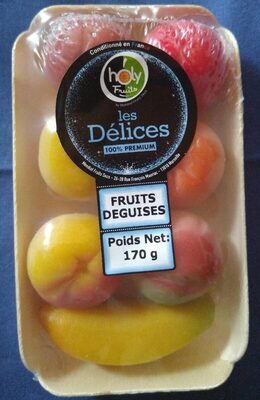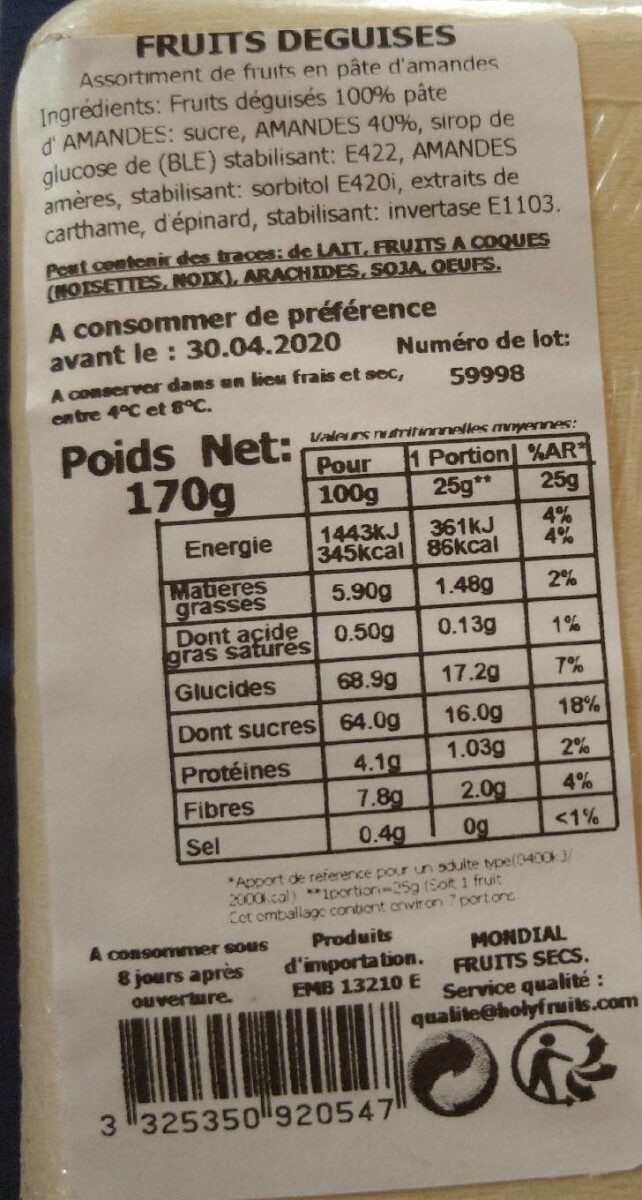Fruits deguisés - MONDIAL FRUITS SECS - 170 g
This product page is not complete. You can help to complete it by editing it and adding more data from the photos we have, or by taking more photos using the app for Android or iPhone/iPad. Thank you!
×
Barcode: 3325350920547 (EAN / EAN-13)
Quantity: 170 g
Brands: MONDIAL FRUITS SECS
Traceability code: EMB 13210E - Marseille 10e Arrondissement (Bouches-du-Rhône, France)
Countries where sold: France
Matching with your preferences
Environment
Packaging
Transportation
Report a problem
Data sources
Product added on by kiliweb
Last edit of product page on by quechoisir.
Product page also edited by roboto-app, yuka.YjVBTElvZFlsL1lxbDhCdTJoM0swTkYyMTVDVVZFeVFHYkVVSVE9PQ.
If the data is incomplete or incorrect, you can complete or correct it by editing this page.






